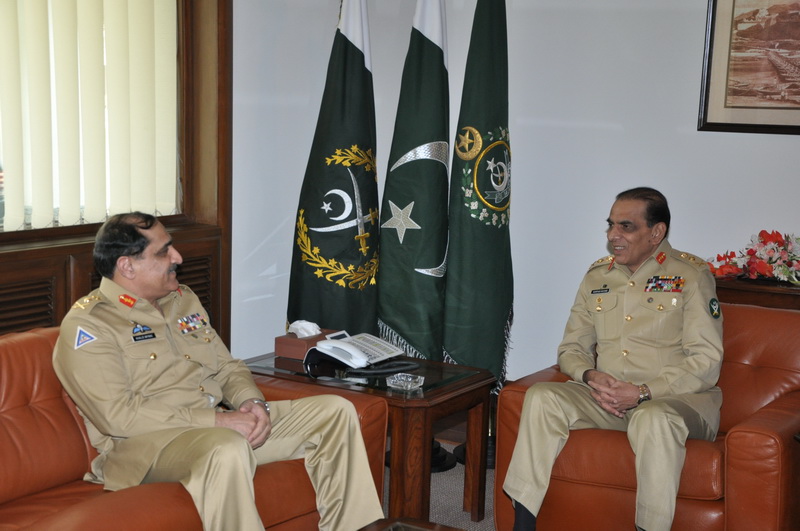WASHINGTON: The latest book by journalist Bob Woodward remarkably paints Pakistan Army Chief General Ashfaq Parvez Kayani and President Asif Ali Zardari as two divergent personalities, one a brave and strong nerved soldier who was standing up against every key US demand and the other a spoilt politician who knows nothing about governance.
The book is credible because it quotes top US officials and what they think about these two important personalities of Pakistan and repeatedly recalls and emphasizes on the political weakness of President Zardari.
It is not Woodward who has given these descriptions but he quotes written letters, memos and diplomats, none of which has so far been denied. What has happened to Nato supplies is also a clear indicator.
These descriptions include one by outgoing US Ambassador in Islamabad Anne Patterson. On Page 136 Woodward recalls a meeting between recently retired National Security Adviser of President Obama Jim Jones and Ms Patterson in Islamabad.
He writes: A small, forthright woman, she gave a candid private assessment of the situation. I worry that all of this is just going to blow up.Zardari doesnt know anything about governing. He will never get out from being Mr Benazir Bhutto, but hes basically on our side.
Jones met next afternoon with President Zardari, and I (Woodward) joined them for the last 15 minutes. Zardari sat between two photographs of his late wife - one of her campaigning, the other a pensive close-up. His black hair was pomaded to his scalp and his suit had the smart cut of an expensive tailor. He beamed with a wide smile that appeared whenever I asked troubling questions. Zardari acknowledged the influence of the Taliban in Pakistan and said, It is a thin line to walk with the Taliban. We must walk in small steps.
On relations with India, he took pride in what he deemed a significant liberalising moment. Ive allowed Indian movies for the first time.
Woodward then gives the assessment of what the Americans thought about Zardari. On Page 137 he writes: Afterward, Jones and his staff debated whether they should worry more about Pakistan or Afghanistan. Several members of his staff said the chief problem was Pakistan Zardaris political vulnerability, the continuing dominance of the countrys military-intelligence complex, its nuclear weapons, the persistent presence of al-Qaeda training camps in the ungoverned regions, and the possibility of a misstep with the CIA drone attacks that could dramatically shift the political calculus.
In another revealing account of what the US officials think about Pakistan under Zardari, Woodward writes on Page 208: Later, that day at 3.30 PM, Obama gathered his team for a three-hour review and discussion of Pakistan.
Lavoy began by summarizing the intelligence picture. Pakistan suffered from the enduring were-with-you, were-not-with-you schizophrenia, the continuing dominance of the military-intelligence complex, and President Zardaris political weakness.
The consensus inside the intelligence community was that Afghanistan would not get straightened out until there was a stable relationship between Pakistan and India. A more mature and less combustible relationship between the two long time adversaries was more important than building Afghanistan, Lavoy said.
Lavoy revisited the Bush years. We had engaged Musharraf as though he was Pakistan, which he was. But with Musharraf out of office and living in London, the US still had not done enough to build relations with other political entities. Deep Pakistani mistrust of American intentions persisted.
Mullen pointed out that the robust military-to-military programmes with Pakistan had grown to nearly $2 billion a year for training, equipment and other enterprises. Relations were getting better. The admiral was spending a lot of time with General Kayani, improving trust between the countries.
Woodward also reveals that a three-page trip report signed by Jim Jones was given to President Obama. It contained a pessimistic summary, noting first the gap between the civilian and military authority in Pakistan.
The US was getting nowhere fast with these guys, talking with Zardari, who could deliver nothing. On the other hand, Kayani had the power to deliver, but he refused to do much. Nobody could tell him otherwise. The bottom line was depressing: This had been a charade. Jones said he was once again alarmed that success in Afghanistan was tied to what the Pakistanis would or would not do. The White House was almost right back to where it had started with Pakistan in 2009. Tomorrow: What the US knows about supply lines.
A few lines in green speak volumes about the gentleman









